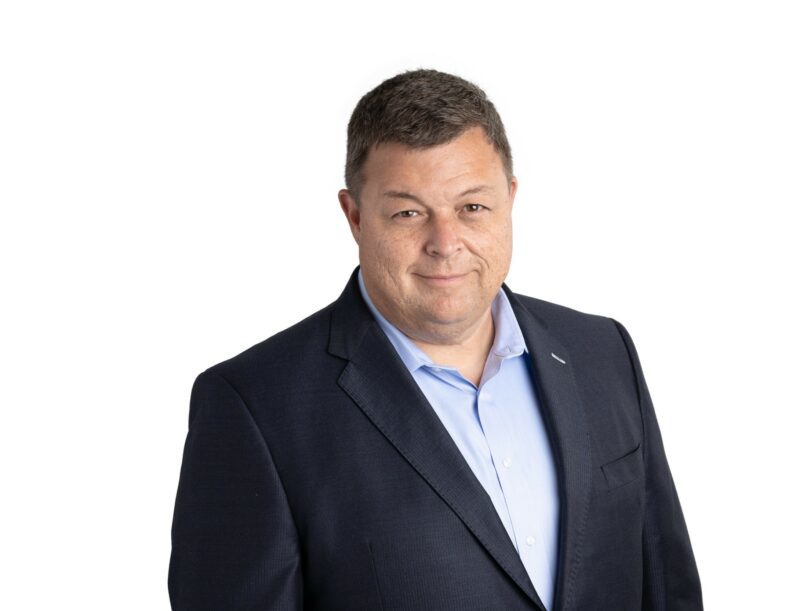
The finalists for WashingtonExec’s Pinnacle Awards were announced Oct. 13, and we’ll be highlighting some of them until the event takes place virtually Dec. 8.
Next is Artificial Intelligence Industry Executive of the Year (Private Company) finalist Barry Smallwood, who’s group president of Akima’s Emerging Markets Group. Here, he talks key achievements, learning from failures, career advice and more.
What key achievements did you have in 2020/2021?
Akima’s work for U.S. Special Operations Command, and my role in it, is my most significant achievement this year. We were able to save the government money while implementing better operation practices, and we turned a corner in terms of data collection, and the speed at which we get that data out to the troops.
A big part of our contract with SOCOM focused on modernizing how they work, and this enabled us to save the customers millions. By starting to modernize the data we collect, we allowed our customers to make faster, more informed decisions.
What was a turning point or inflection point in your career?
I was working at the Drug Enforcement Administration right after 9/11, and I was asked to create a new law enforcement data fusion center. At the time of 9/11, there was limited data sharing among all law enforcement, so I knew this was my opportunity to help in the law enforcement world. We were able to create a data fusion center that was instituted among all law enforcement and is still operating today.
That task was an inflection point for me personally, because it drove my interest in data analytics and artificial intelligence, and that led to the work I am currently doing for SOCOM and the Defense Technical Information Center. I saw first-hand how important this type of work is and how critical it is to the nation and the security of the nation, which is something I’ve carried with me throughout my career.
What are you most proud of having been a part of in your current organization?
Something that has always been a top priority for me is making an impact and giving back with the work I do. That opportunity was a very rewarding aspect of my career at DEA, so when I decided to leave that role, I knew I wanted to be part of something that would continue to have a similar impact.
I’ve been able to do that with Akima’s Emerging Markets Group, as all my contracts are mission-oriented and are designed to give back to the nation’s security. On an even higher level, Akima as a company is heavily focused on giving back to our shareholder community — the Inupiat people of Alaska.
What are your primary focus areas going forward, and why are those so important to the future of the nation?
Our primary focus for Akima’s Emerging Markets Group is twofold: data analytics and artificial intelligence. We are utilizing them to save our clients time and money to provide faster and more accurate answers that enable them to make quicker decisions regarding our nation’s security. The clients make decisions based on what we, as EMG, give them, so I am continually looking for ways to improve that process.
Overall, the primary goal is to solve problems and provide solutions for our clients.
How do you help shape the next generation of government leaders/industry leaders?
I want the next generation of leaders to understand that they must lead by example.
You must remember that the key to leadership is remembering that it’s always a team effort — teaching people that it’s not all about themselves and that the best way to lead is to emphasize that what is most important is winning as a team.
I was able to learn the importance of trust and teamwork by working in law enforcement and I’ve tried to maintain that mindset in other leadership positions throughout my career. I also bring this mentality to my interactions with government leaders. I ask them, “Are you listening to your customers?” A lot of people like talking, but not as many people know how to truly listen — and listening to what your people and customers need is what will set leaders apart.
What’s one key thing you learned from a failure you had?
There isn’t any one failure that has taught me, but I have learned a lot from working through failures or setbacks. The biggest takeaway is to try to frame these experiences as lessons that can help with self-improvement in the future. I like to ask myself what I did wrong or what I could do better next time. That way, I am not dwelling on the setback and I’m instead moving forward.
It is also important that leaders shoulder the failures and setbacks of the team. The more we can learn from the things that go wrong, the more we make our teams understand they should not be afraid of failure. In my experience, this is the best way to make everyone else successful in the long run.
What’s your best career advice for those who want to follow in your footsteps?
Career development is a partnership. Listening to people, customers both internal and external, is an absolute must. But you also need to speak up for what you want and deserve to advance your career, because it won’t be handed to you.
Speak up, listen, take chances and do not be afraid to fail. If you’re afraid to fail, then you’re not going to be successful.

